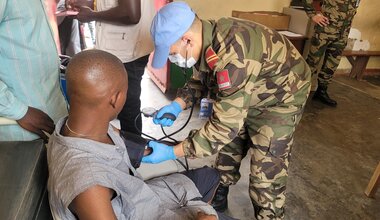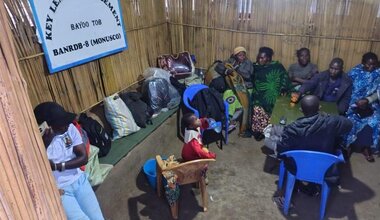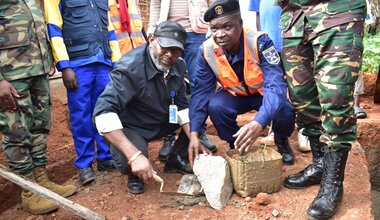Women to Women Sensitization for Participation in Upcoming Elections
Kisangani, 15 June 2011 – A delegation of women from Kinshasa led by fellow representatives from the National Independent Electoral Commission (CENI), and the Electoral Division of the United Nations Stabilization Mission in the Democratic Republic of Congo (MONUSCO), arrived in Oriental Province early in June to mobilize their peers to massively participate in the ongoing electoral process.
Achieving meaningful participation of women as voters and candidates in the upcoming elections is a great challenge that women's groups in the DRC are trying to meet. At this stage, voter registration statistics from nearly all provinces show that the level of females' participation still remain below expectation. Just a few months ahead before the elections, the visiting delegation is intent on correcting these disparities.
The current mission, which is being conducted from 14 to 20 June, is focusing on two localities, namely Kisangani, the capital of the province, and the town of Isiro in the district of Haut-Uele. "The aim is to awaken and sensitize women on the need to improve their representation in provincial and national institutions, which means improving their performance in the upcoming elections, » explained a member of the delegation, Leone Hettenbergh, of MONUSCO's Electoral Division.
The delegation has initiated a series of meetings with leaders of women's associations, the media, civil society, students, representatives of religious groups, and political parties. An awareness campaign has been launched in several communities, including a motorized caravan in the streets of Kisangani.
Women account for 52 % of the total population of the RDC, but in the last cycle of presidential, legislative and provincial elections in 2006, female participation failed to reach the 15% point. These results were insufficient in light of the constitutional objectives of gender parity; hence the need to strongly mobilize women as voters and as candidates for the 2011 elections.
Codjo Houegniglo/ MONUSCO
 UN
UN United Nations Peacekeeping
United Nations Peacekeeping





